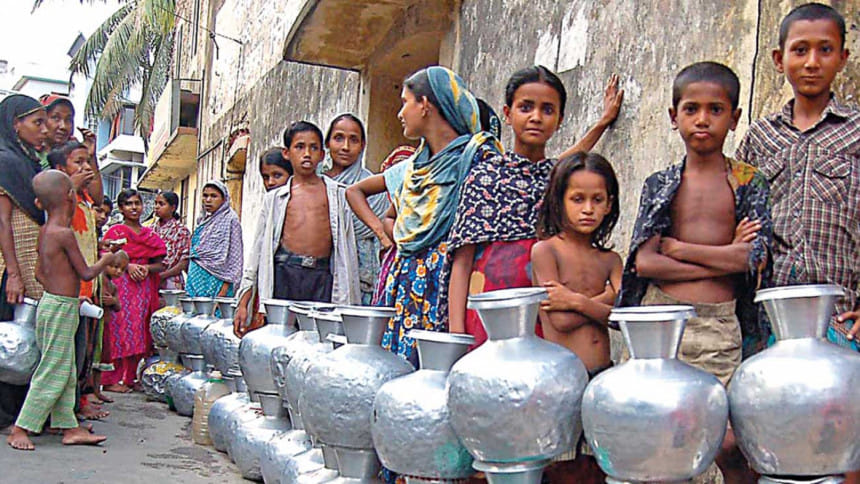Statistics:

Due to inadequate access and insufficient water supply, the "floating" or street people of Dhaka have to spend more money on average on water, compared to the people living in slums and apartments, researchers say. Through a questionnaire survey conducted in different areas of Dhaka, the research finds that 40 percent of the street people collect water from distribution pump houses of DWASA, 37 percent from mosques, 16 percent from DWASA's roadside posts, 4 percent from houses of other people and the rest 3 percent from schools, public toilets and other sources. By spending 30 to 45 minutes on average per day, they are able to collect around 15 to 25 litres of water used for drinking, cooking, bathing and cleaning purposes which is nearly 25 percent of the minimum water demand for a person every day.
"More than 60 percent of the respondents have said that they can collect water without any cost, but the rest have to spend 15 to 25 taka per day on transport costs," explains Subrata Chowdhury, the key researcher and Assistant Professor, Department of Civil Engineering, Stamford University Bangladesh.
"A floating family of four members that consumes around 20 litres of water on average has to spend more than Tk 500 per month to collect and transport water, whereas a family that consumes more than 80 litres of water on average a day has to spend nearly Tk 500 per month for their piped water supply."
What is more alarming is that even after spending a large amount of money, the water that the street people consume is unclean, whereas the pipe water users have access to good quality water for both cleaning and drinking purposes. The research addresses the need of a planned rehabilitation programme and different initiatives from private organisations and NGOs to help distribute water to low income street dwellers so that they can benefit from the same facilities as everyone else.

 For all latest news, follow The Daily Star's Google News channel.
For all latest news, follow The Daily Star's Google News channel. 



Comments